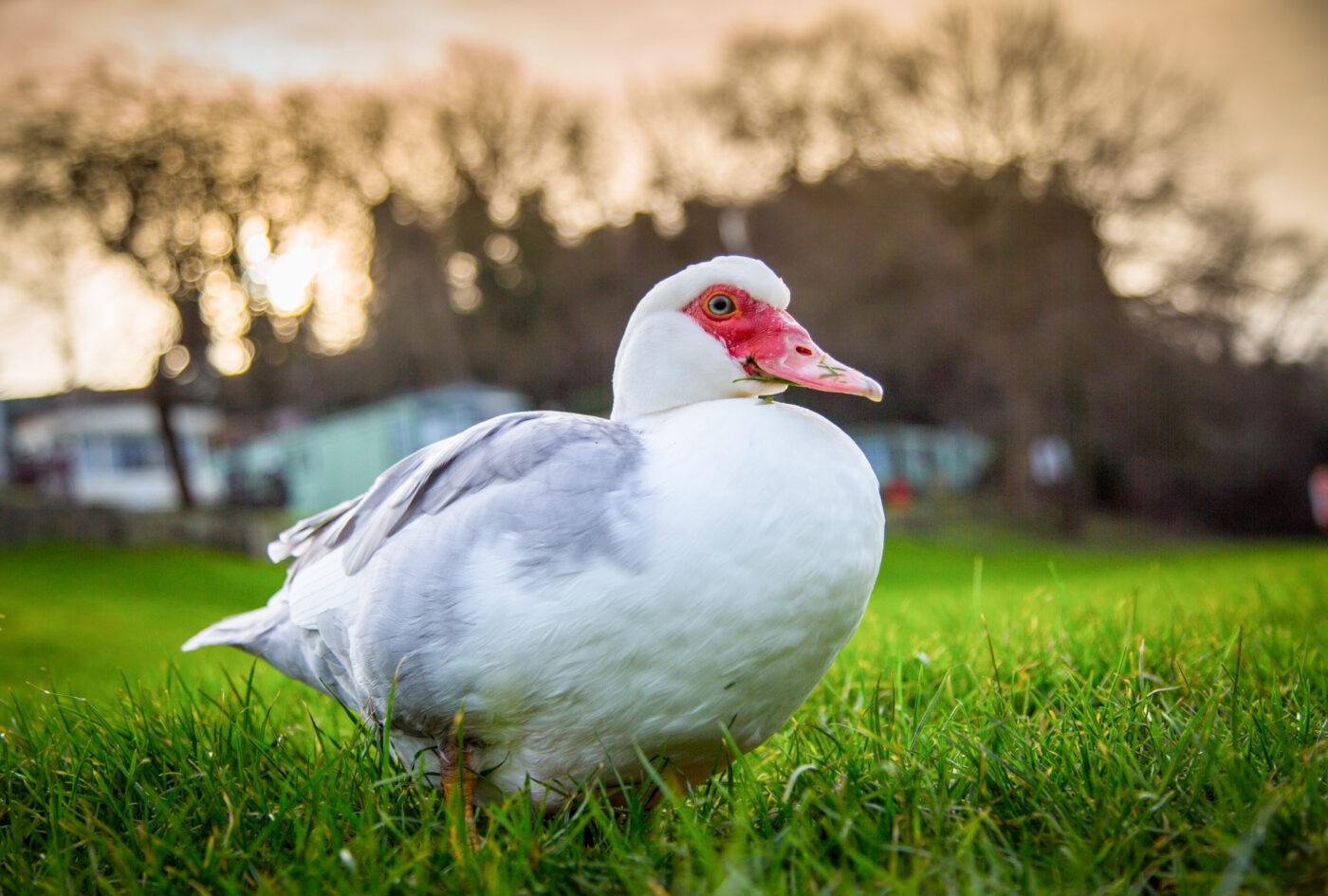All You Need To Know About Muscovy Ducks
What do Muscovy Ducks eat?
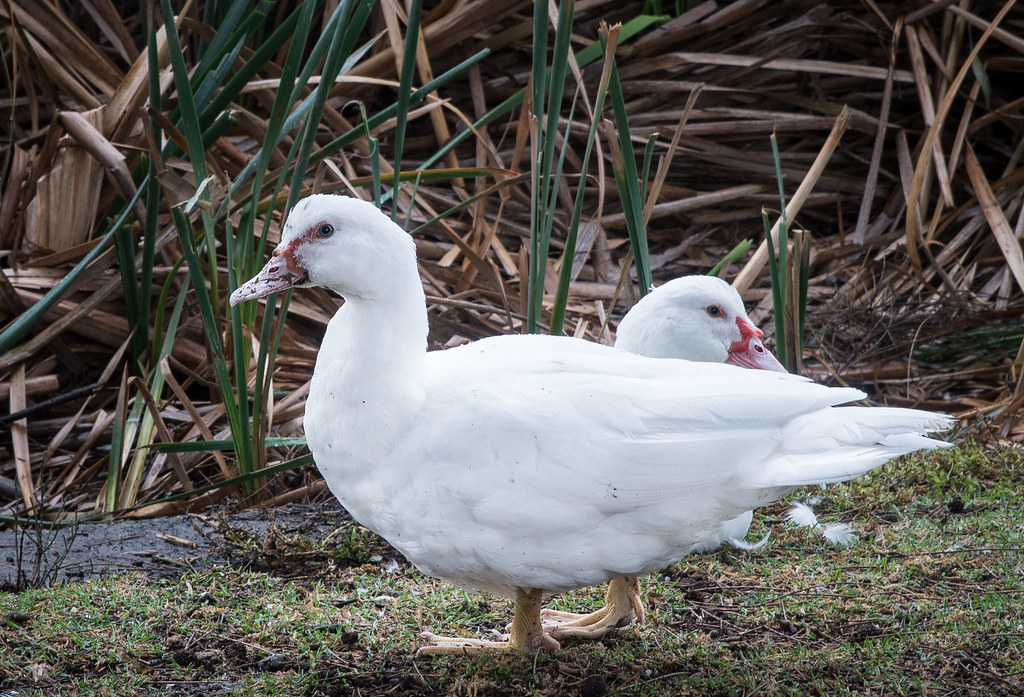
Muscovy duck food is the cheapest because muscovies can eat anything from worms, plants, insects, small fish, and reptiles. Muscovy ducks are omnivores creatures that eat both plants and animals no matter what cycle of life they’re in. They eat insects such as mosquitoes and lay their eggs in water. Muscovies will eat mosquitoes at both larval and adult stages. Muscovies make good pest control for flies and insects.
During the summer, the ducks don’t require much from you because they can find food for themselves. During the wintertime, they might need a little more depending on your purpose for them. If the purpose of your Muscovy duck is for eating, then put them on a grower’s ration. If otherwise, then the layer ration will work just fine. It is important to know that even though these ducks can eat almost, it is good to have muscovy duck food special for them.
For Muscovy ducklings, feed them an all-flock feed with brewer’s yeast. Make sure you feed them food that has a natural source of niacin such as nuts, there isn’t really isn’t the “right” muscovy duck food. Niacin helps all ducks to grow strong legs. But make sure you keep them on a restricted diet so that they can learn how to look for food for themselves. Muscovy duck food isn’t hard to find, because they eat anything.
For commercial Muscovies, the best food is a protein-rich diet with sources of niacin to help the ducks’ legs grow stronger. Anything that is rich in protein and niacin is the best source of muscovy duck food.
List of Food Items For Muscovy Ducks

The following are different things that muscovy ducks like to eat, muscovy duck food.
- Leaves
- Stems
- Seeds
- Mosquitoes
- Snails
- Worms
- Small Fish
- Termites
- Grass
- Maggots
- Black widow spiders
- Flies
- Roots
Muscovy ducks can also eat bird seeds. Bird seeds have many minerals, vitamins, and nutrients that are important and healthy for the ducks and ducklings in order to grow healthy.
In wetlands, Muscovy duck food is mostly grasses, sedges, water lily seeds, mangrove seeds, tubers, and crustaceans.
Do Muscovy Ducks Eat Fruits & Vegetables?
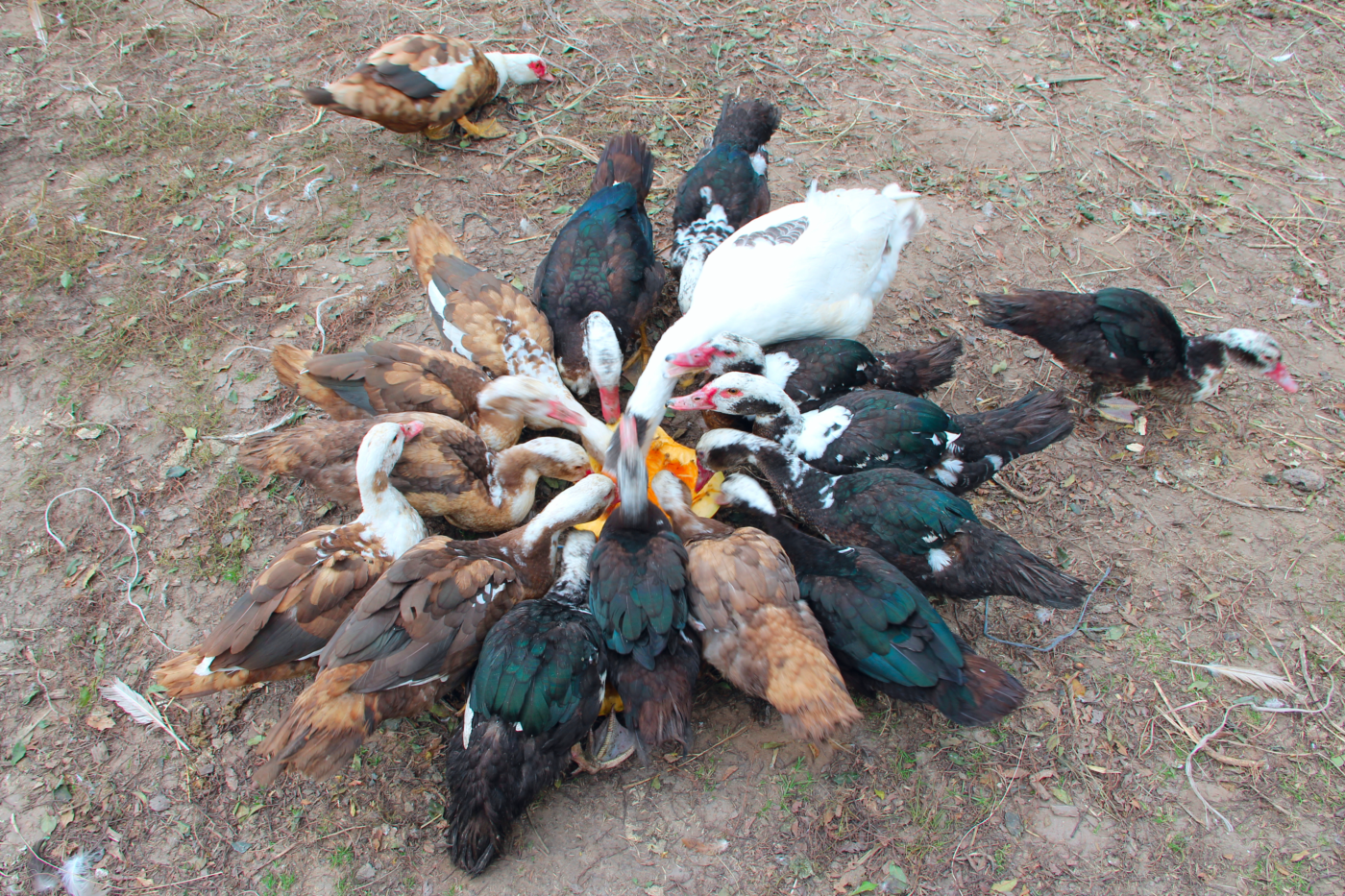
Muscovies love all kinds of fruits and vegetables. Peas, grapes, bananas watermelons, and plums are all good for them. Try avoiding citrus fruits such as lime, lemons, oranges, and grapefruit. Citrus fruits do interfere with the absorption of calcium and contribute to thin-shelled eggs. Citrus fruits can also cause acid reflux and stomach pain in ducks. Fruits and vegetables make great muscovy duck food.
What Not To Feed Muscovy Ducks

Even though Muscovy ducks can eat almost everything, there are still some things that can be poisonous to the muscovies. Rhubarb is one of those things that muscovy ducks cannot eat. Rhubarb contains a toxin called oxalic acid. oxalic acid can prevent ducks from absorbing the calcium they need. A lack of calcium can result in egg binding. Rhubarb is not a great choice for Muscovy duck food.
Benefits of Muscovy Ducks
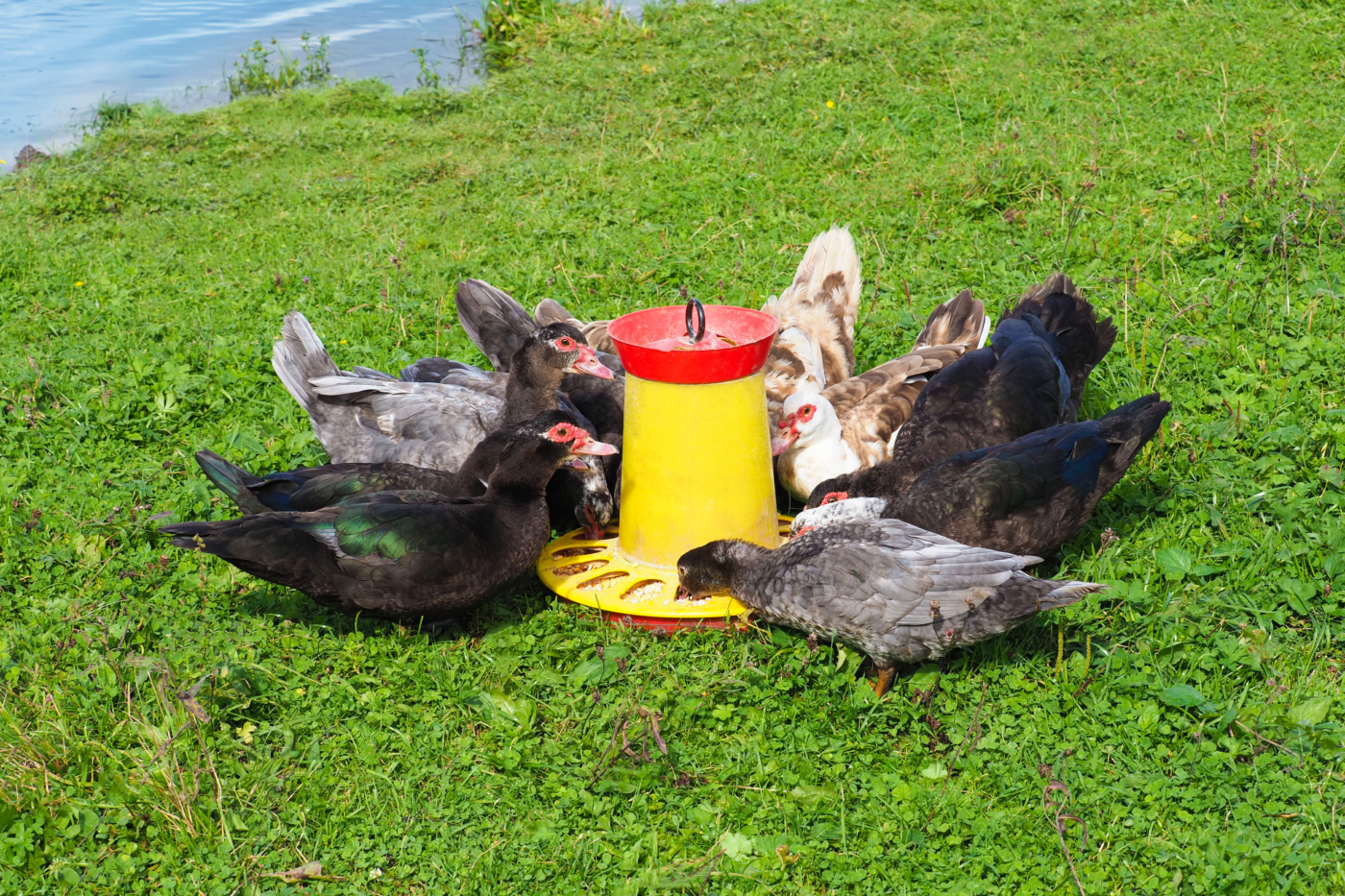
- Suited for free-ranging
- They take care of pets
- They lay big eggs
- Delicious meat
Muscovy Duck Meat

Muscovy duck meat is a deep red gamy meat that is low in fat. Even though the meat is expensive, the Muscovy has a higher meat-to-bone ratio which means it’s great value for money! Furthermore, with their meat being lean, it has less fat and calories when cooked. Muscovy duck meat is also a great source of protein, proteins are good for building muscles and blood. It also provides 50% of the iron that our body needs. Iron provides healthy blood that flows through our bodies and helps us grow.
Muscovy Ducks Lifespan & Environmental Requirements
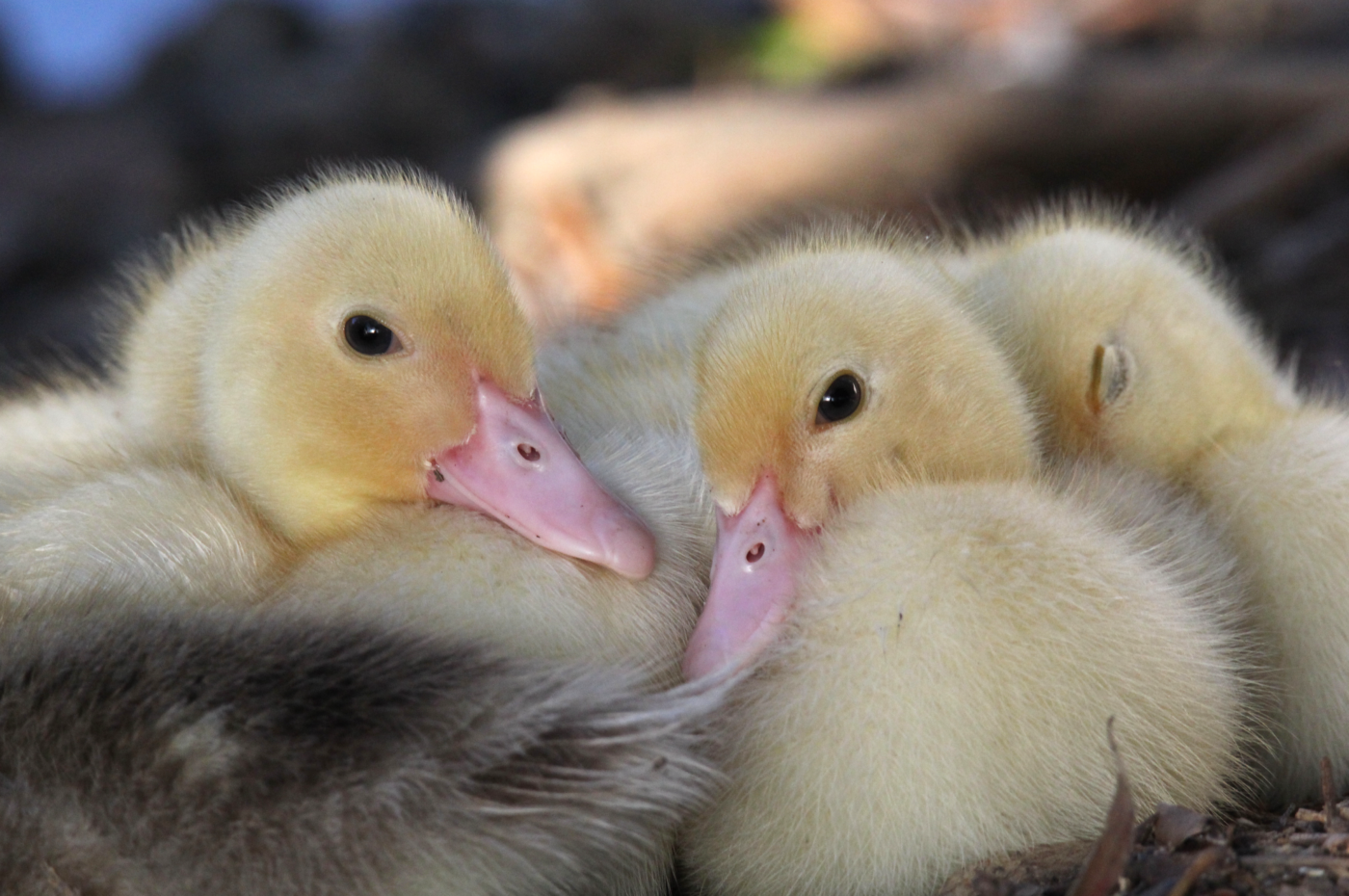
How long do Muscovy ducks live?
Muscovy ducks live between 8-12 years but if well taken care of, they can live up to 20 years. This number is less likely for Muscovies in the wild. With the right muscovy duck food diet, these ducks can grow up to 12 pounds in just 12 weeks.
Muscovy ducklings start to lay their eggs at about 6 months old, or 25 weeks. They will continue to lay eggs for about 3 years or longer if fed a protein-rich diet
When Buying Muscovy Ducks
- As they are social animals, make sure you buy more than one. For a small backyard, buy one male and at least 2-4 females.
- Muscovy ducklings are sensitive to cold weather and need to be kept in a warm environment if the mom isn’t around.
Do Muscovy ducks sleep in trees?
Domestic Muscovy ducks can sleep in a protected coop to keep them safe from predators. Wild Muscovy ducks do like to roost in trees. While most ducks wouldn’t do this, the big claw on the Muscovy helps them grip and hold on.
Wild Muscovy ducks like to build their nests in hollows of trees that are 10-65 feet above ground and cavities. Muscovy duck moms are committed to sticking on a single tree for the rest of their lives.
What are the water requirements for domestic Muscovy Ducks?
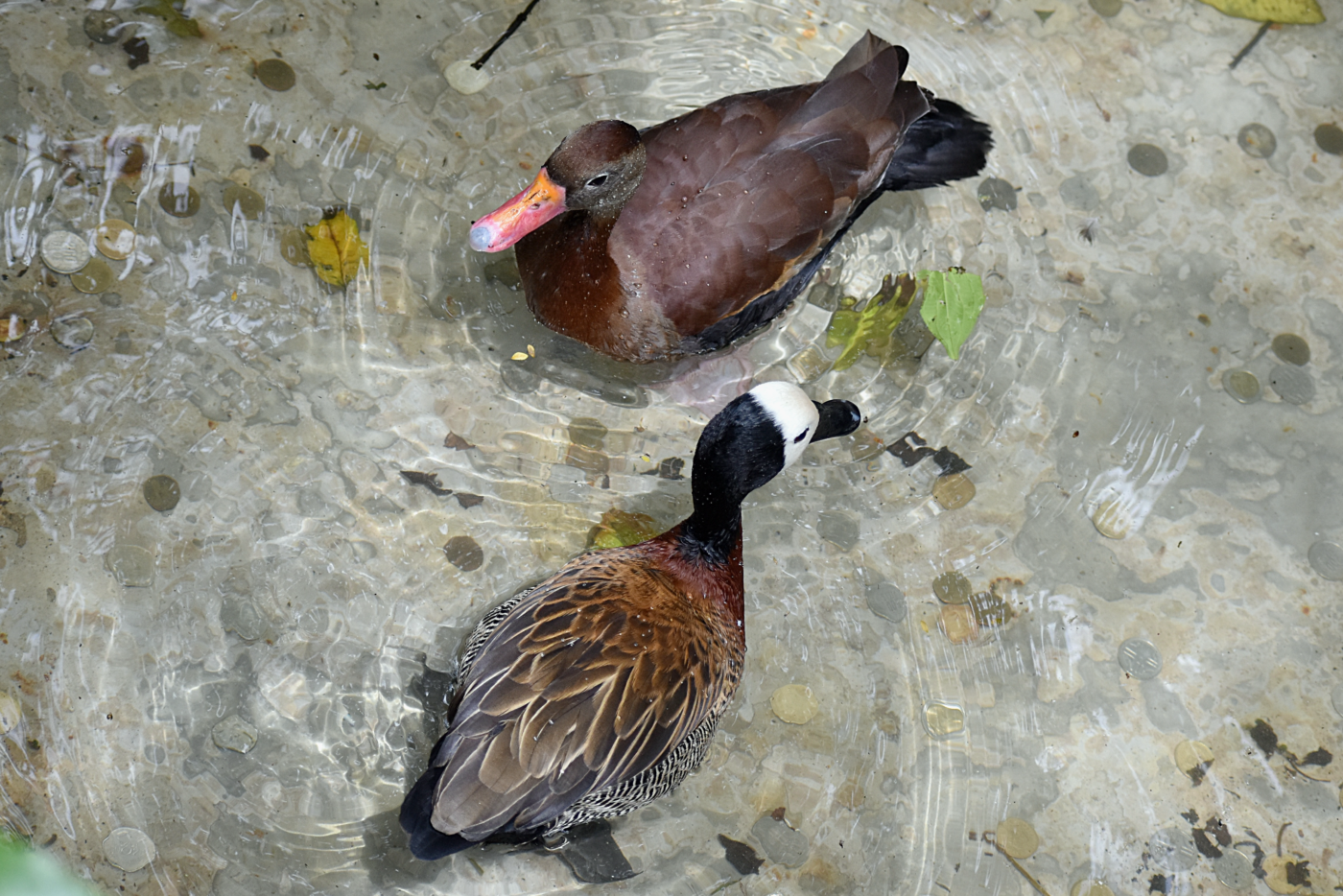
Even though Muscovy ducks do not require a lot of water like other ducks, they do still need water. For general good hygiene, they require water deep enough for them to bathe in. This water is also important for grooming their feathers, and eye cleaning. They appreciate warm water during the cold season too. Muscovy Ducks’ feathers are not waterproof compared to other ducks, because of this, they do not like to spend a lot of time in the water. Also, you might need to provide a lot of water alongside their Muscovy Duck Food.
Information From Florida Fish Wildlife Conservation Commission
The FWC states that a permit isn’t required to possess muscovy ducks as pets. But you do need a permit in order to possess them for sale or exhibition. Muscovy ducks are not native to Florida and they fall under the Class III Wildlife regulation.
In Florida, there is a Muscovy duck population all over the state. The largest cities with Muscovy populations are Jacksonville, Miami, Fort Lauderdale, West Palm Beach, Fort Meyers, Tampa, and Orlando.
